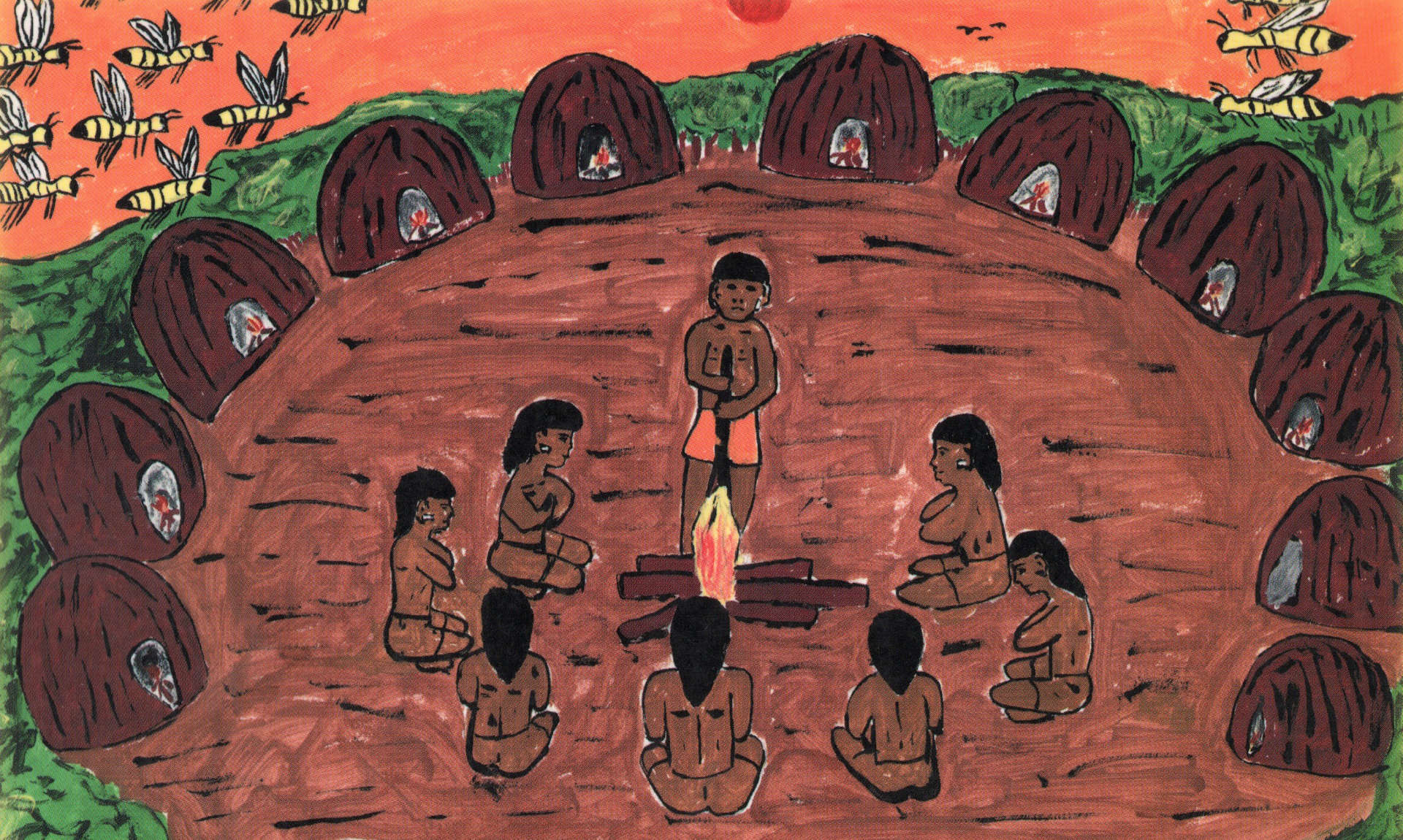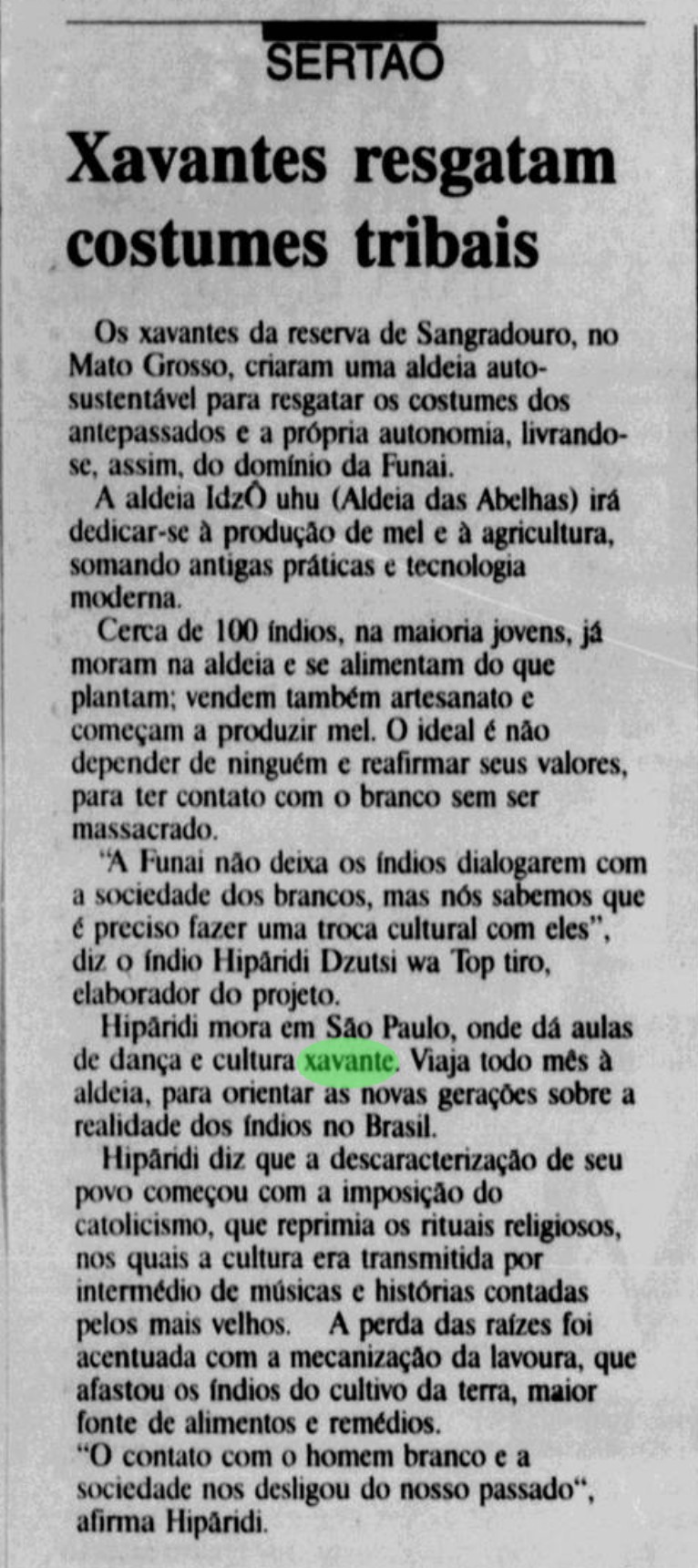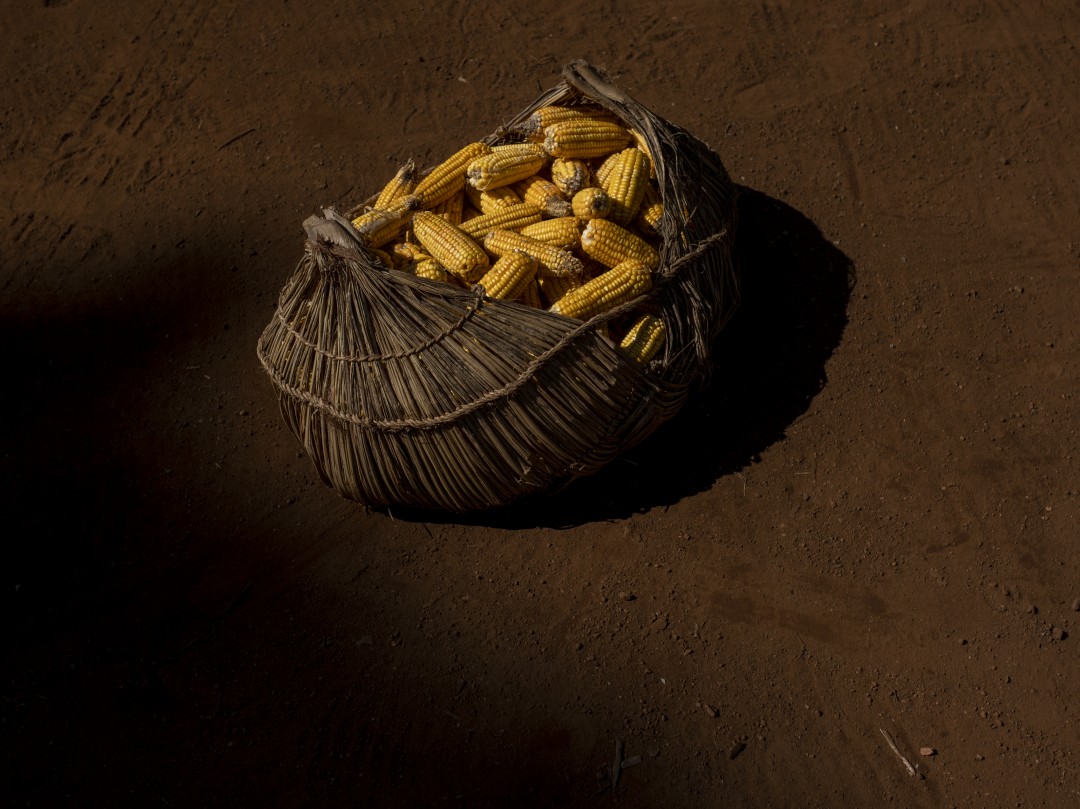Warã
defend the rights and territory of our people
We established the Xavante Warã Association (AXW) in 1996 with the aim of defending the rights and territories of our A’uwe people, known as “Xavante” by the waradzu.
At that time, the forest was being cleared for the establishment of large farms throughout the Araguaia Valley, along the banks of the Rio das Mortes, and in the Serra do Roncador. The government had divided our lands with highways, creating towns and cities in the vicinity of our territories.
Concerned about the future of our people, we gathered in an assembly at the center of the village and decided to establish an organization that would serve as a platform to fight for our rights. We called this assembly, where we sat in a circle and discussed the problems we faced, ‘warã,’ which is where the association’s name originated.

The Warã has been working for the A’uwe-Xavante people since its foundation. In the 1990s, we joined forces with partner organizations and social movements to address the impacts of the paving of BR-070.
In the early 2000s, we mobilized against the construction of the Água Limpa and Toricoejo hydroelectric plants, which posed a threat to the Öwawe, also known as the Rio das Mortes.
These struggles continue today, with a focus on the fair assessment of the impacts of the hydroelectric plants in the Rio das Mortes basin, the paving of BR-080, and the construction of the EF-354 railway.
In addition to fighting for the integrity of A’uwe lands, Warã develops projects in the environmental and cultural spheres. We work on the restoration of degraded areas, the protection of springs, and the promotion of our people’s culture. These actions have contributed to keeping the ró and the way of life of the A’uwe people alive.
Our association also participates in actions and mobilizations in defense of health, education, culture, and food sovereignty, bringing together men and women from all the lands of the A’uwe-Xavante people.

Note in Jornal do Commercio, published in January 1997, reporting on Warã’s work in Aldeia Idzô’uhu

